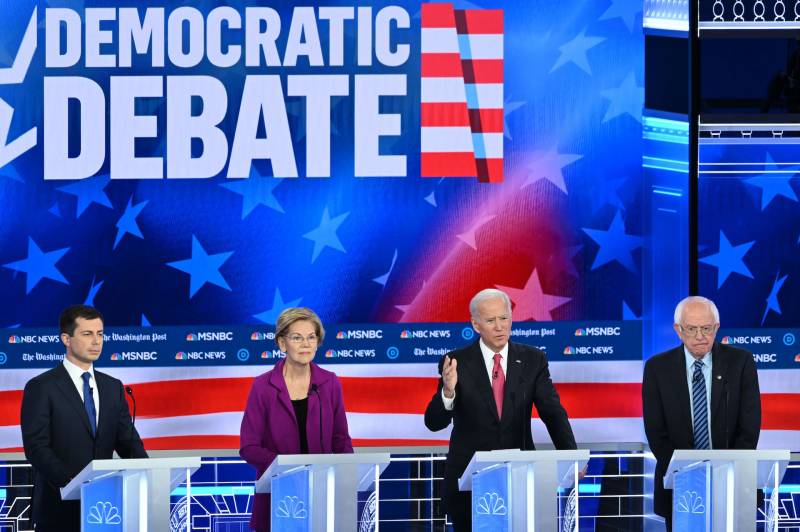Two years ago, frustrated by always being in the shadow of Iowa and New Hampshire, California moved up the state’s presidential primary from June to March, with the goal of strengthening the influence of the state's 20 million registered voters.
"We are one in eight voters in the country," says Kim Alexander, founder and president of the California Voter Foundation. "So we do want California to have a say."
The way Alexander sees it, it's now or never to have an impact, given that California is certainly not one of the handful of swing states that grab all the attention leading up to the general election in November.
"If we want Californians to have a voice in deciding who the president is, we really have to focus on the primary," she said.
Californians have long been sensitive to serving as a "political ATM,” where Democrats and Republicans come to withdraw campaign cash — then fly off to campaign in swing states.
But Aimee Allison, president of She the People, a national network of women of color voters, says it's time to embrace it. Campaign donations are perhaps the most important way California can influence the Democratic nomination.
"Without California, there would be no surge in fundraising and visibility for [South Bend, Indiana Mayor] Pete Buttigieg, for example, because a lot of his money and force behind his campaign is really coming from both Silicon Valley and from Hollywood," she said.
Encouraging candidates to address issues with special resonance in California was another major reason for moving up the presidential primary.
"We Californians, we can't afford the rising costs of not only just buying a house, but rent and gentrification has reshaped and shaped our cities," she said. "We really need to address that issue, not just on the state level, but we need leadership at the federal level."
Alexander, for one, wants to hear more discussion among candidates about the distinct link between climate change and homelessness in California.
"You know, how they're going to address the climate crisis, how they're going to address climate refugees, which we have right here in California every time there's a wildfire," she said.
For his part, former Gov. Jerry Brown is critical of the way the media and the candidates have thus far focused on a relatively narrow set of issues. Even their different approaches to health care seem relatively minor to him, compared to what he considers the bigger issues at stake.
